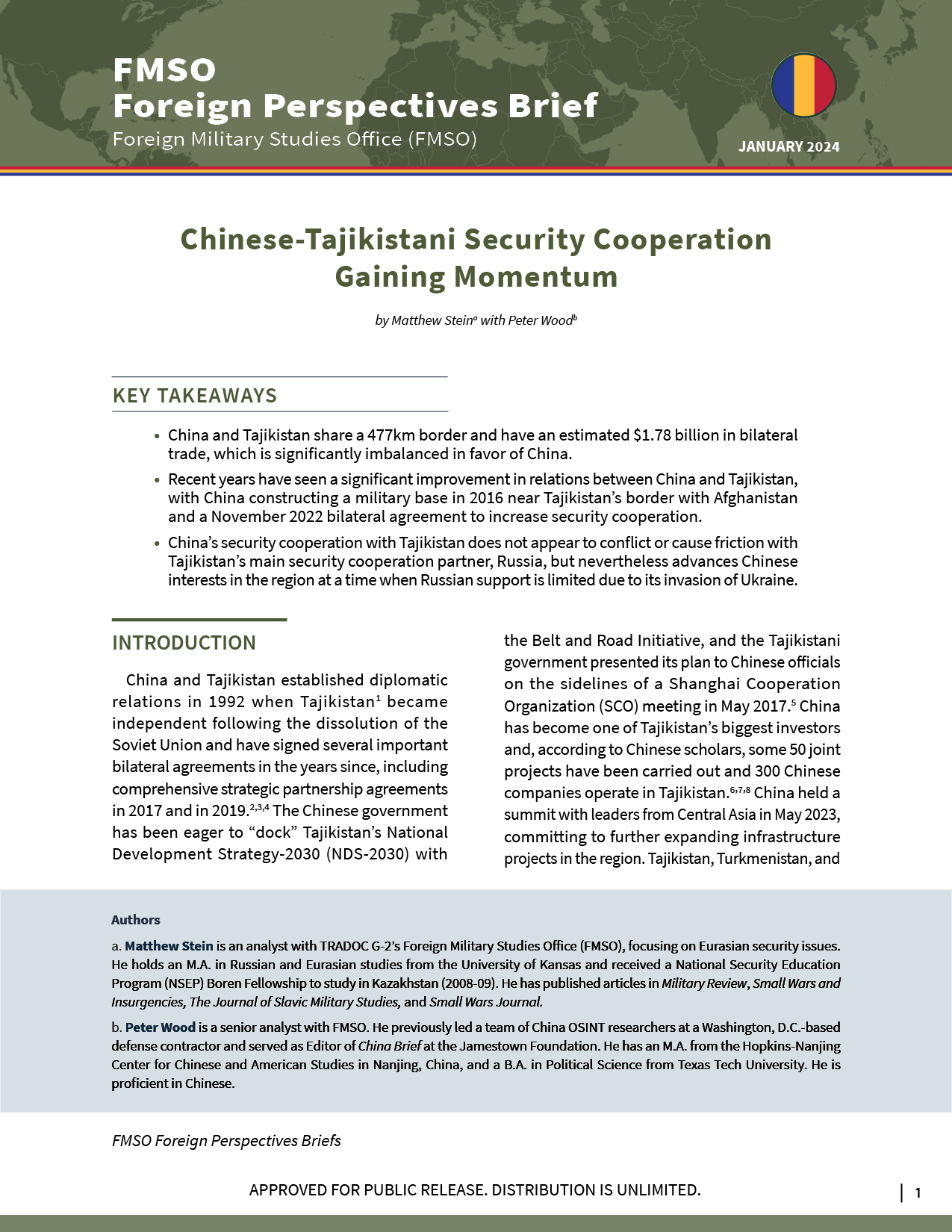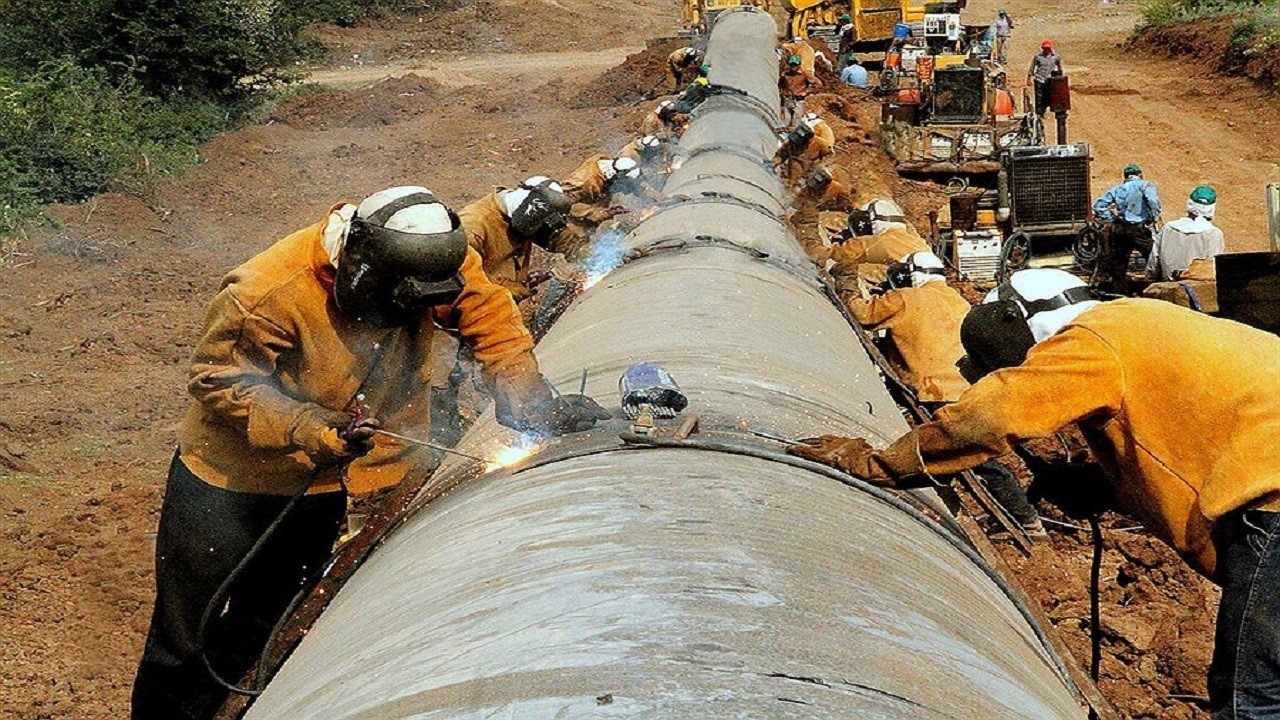Workers construct a pipeline in Iran near Azerbaijan.
“Deficits and pressure drops caused early gas outages.”
Iran has long had strained relationships with Azerbaijan and Turkmenistan. On 28 November 2021, Iranian President Ebrahim Raisi signed a tripartite gas swap agreement with his Azerbaijani counterpart Ilham Aliyev and Turkmenistan President Gurbanguly Berdymukhammedov. The excerpted article from the Mehr News Agency, an outlet affiliated with the Islamic Ideology Dissemination Organization in turn supervised by Supreme Leader Ali Khamenei, details the background to the deal, the problems Iran has faced with its neighbors to the north, and the benefits Iran expects from the deal.
Even though Turkmenistan is a Sunni country, Iran historically had regarded it as a useful trading partner to make up for gas shortfalls. However, around 2007, Turkmenistan repeatedly moved to adjust the price of gas supplied to Iran, its long-term contract notwithstanding. While this created some tension, Iranian officials nonetheless continued their bilateral trade until Turkmenistan cut it off due to Iran’s accrued debts.
Iranian relations with Azerbaijan are more complex. Two-thirds of the world’s Azeris live in Iran while barely one-third live in Azerbaijan. Azerbaijan is also largely Shi’ite, but this ethnic and sectarian overlap has only heightened suspicion. Azerbaijan is a largely secular state and Iran is an Islamic Republic and a Shi’ite-led theocracy. Tehran also resented Baku’s extensive relationship with Israel and suspected that Israeli agents used Azerbaijan as a launch point for operations against Iran’s nuclear program. Tension flared in October 2021 when Iran held war games along its frontier with Azerbaijan, a move that Baku saw as an implicit threat.
Concerns aside, the recent agreement, which took effect on 22 December 2021, outlines a gas swap in which Iran would receive gas from Turkmenistan and supply an equivalent amount to the Azerbaijani enclave of Nakhchivan, a territory bordering Iran but separated from the rest of Azerbaijan by Armenia. The Iranians expect 1.5 to 2 billion cubic meters of gas to be transported annually. Aliyev signaled that the deal could enable a sharp turn in the trajectory of relations. “From now on, Iranian-Azerbaijani relations will develop in all areas,” he said. He also celebrated the fact that Azerbaijan was peeling Iran away from Armenia.
The Raisi government hopes that the gas swap will help alleviate energy problems in northern Iran in time for winter. The excerpted article suggests that low pressure and inadequate gas contributed to energy shortages. Unmentioned in the article is that, in 2008, gas shortages combined with impassable roads due to heavy snows led to unrest in several northern provinces that took the Islamic Revolutionary Guard Corps to quell.
Source:
“Qarardad-e Swap-e Gazi Seh Janehbeh (Tripartite Gas Swap Contract),” Mehr News Agency (affiliated with the Islamic Ideology Dissemination Organization supervised by Supreme Leader Ali Khamenei), 30 November 2021. https://www.mehrnews.com/news/5363718/
…Last night, news was published that contract for gas swap with a capacity of 1.5 to 2 billion cubic meters from Turkmenistan to Azerbaijan through Iran had been concluded. This important agreement was announced at a time when gas imports from Turkmenistan had long been suspended because of financial disputes and with Azerbaijan because of political disputes. In this regard, last night, Minister of Oil, Javad Owji, said, “Since December 2016 , Iran’s gas relations with Turkmenistan had been cut off, but with the conclusion of this agreement, a step forward was taken in the energy relations between the two countries….”
The most important aspect of this agreement is the restoration of relations with Turkmenistan. Iran and Turkmenistan gas relationship that began in 1996 with the conclusion of a 25-year contract. Gas imports from Turkmenistan were strongly in Iran’s favor due to the low price of that country’s gas compared to other countries. Of course, beginning around 14 years ago, Turkmenistan suddenly began to demand price increases against the opposition of Iranian officials. However, relations between Iran and Turkmenistan continued to be good until 2013, but in 2016, Turkmenistan cut off gas exports to Iran due to accumulated debts….
The most important advantage of the swap can be considered the proof of security and the country’s ability to transfer energy between two different countries. This advantage becomes even more important in relation to the relations between Iran and Azerbaijan, which have been embroiled in political disputes in recent months. It should be emphasized that Iranian gas delivered to Azerbaijan is located in the small and strategic region of Nakhchivan….
The final advantage of this contract is to solve through the right of transfer the problem of gas deficits and pressure drops in the northern provinces of Iran. In recent years, such deficits and pressure drops caused early gas outages in industries and problems in domestic consumption. In this regard, the head of the National Iranian Gas Company stated, “In addition to economic importance, this contract will help the stability of the gas network in the north and northeast of Iran.”
Image Inforrmation:
Image: Workers construct a pipeline in Iran near Azerbaijan.
Source: Fars News Agency
https://cdn.yjc.news/files/fa/news/1400/9/10/15218933_862.jpg
Attribution:


